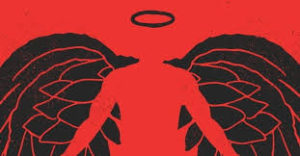The Fall of the King of Babylon
14: 4-23

This is one of the finest Hebrew poems in the Bible. It is a taunt-song, rejoicing over the downfall of the king of Babylon, the antichrist. The song itself is bracketed by opening (14:1-2) and closing statements (14:22-23) that put the song in proper context. It is divided into four stanzas of almost equal length. Each one describes a different scene. The first (14:4-8) shows the breaking of the antichrist’s rod. The second (14:9-11) tells of the soul of the antichrist in sh’ol. The third stanza (14:12-15) describes how the Adversary has fallen from heaven. Finally, (14:16-23) we return to earth and Isaiah deals with the final disgrace of his arrogant pride: the denial of a decent burial and the destruction of his descendants. The power of the poem lies in its mockery of the lament form. Here all the elements are turned around. This song for the dead is a song of joy – not grief. How terrible he was. How wonderful it is that he has been thrown out of heaven. Whenever evil is defeated and righteousness is victorious, there is cause for joy!
This is a song about pride and self will. In our own day, who could better represent the “king of Babylon” than the two great murderers Saddam Hussein and Osama bin Laden? Each in his own way expected to leave behind him an empire that would rule the world. And because of his enormous pride, each one believed in his absolute right to destroy anyone who would get in his way. Each one was willing to reduce not only the world, but also his own kingdom (14:20) to destruction, if necessary, to achieve his goals. How the oppressed of the world breathed a sigh of relief when each of these monsters died. Their sin was pride and pride kills as Isaiah describes here. It kills those who cross its will and finally it kills itself as it plunges down in a deadly spiral where, in the end, it exists for itself.48
Thus, what does this have to do with you and me? Because of our fallen nature, each one of us has this tendency. So when we say, “I will live only for myself,” we should not be surprised to find ourselves going down that path to destruction. The only cure is surrendering our will to Yeshua Messiah. Yet not as I will, but as You will (see my commentary on The Life of Christ, to see link click Lb – The Garden of Gethsemane).



Leave A Comment